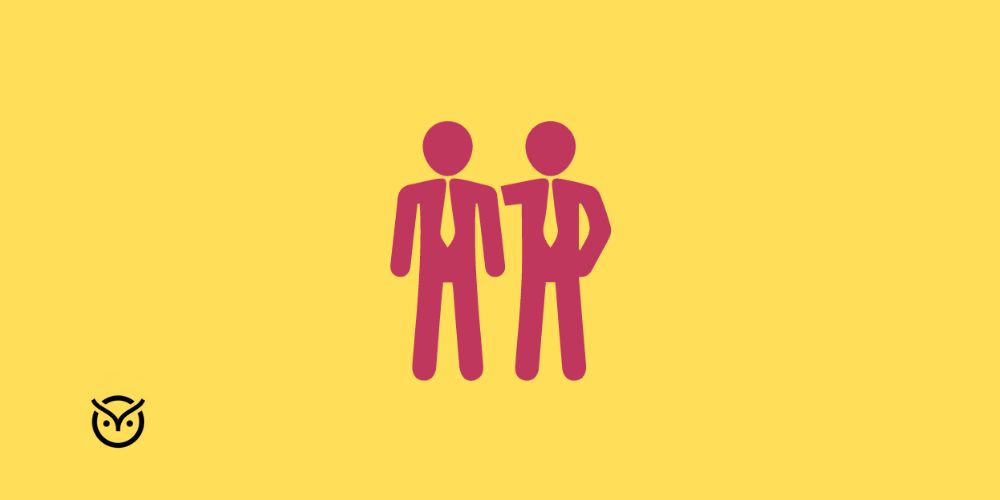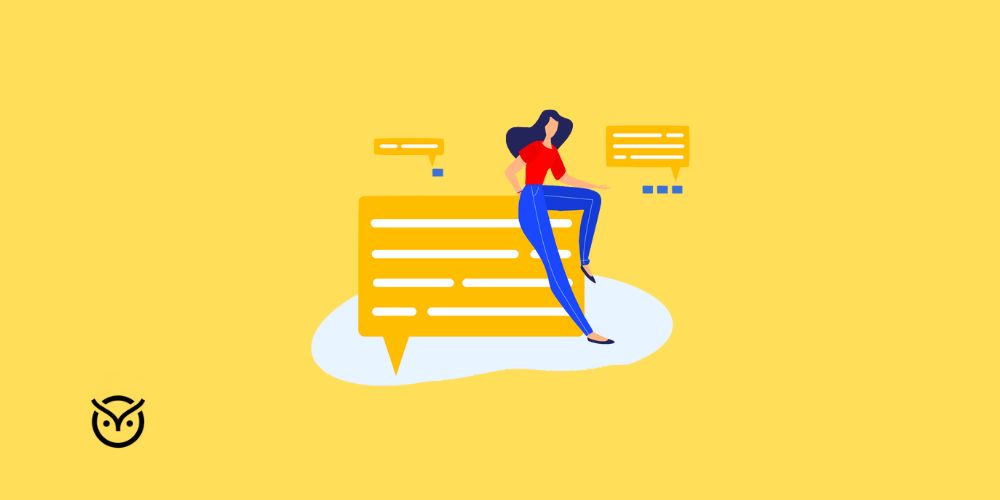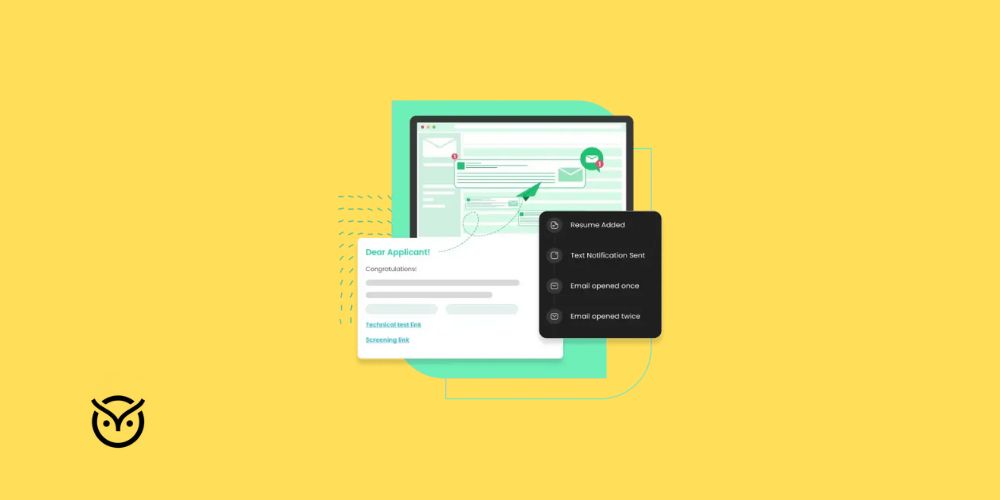
TL;DR
- The first impression at a job interview shapes the entire meeting.
- Strong preparation builds confidence from the first minute.
- Behavioural interview questions help you show real strengths.
- Small habits like posture, tone, and clarity improve impact.
- A bad start can be fixed with calm recovery steps.
Making a great first impression at a job interview matters because many candidates lose chances in the first few minutes without even noticing it. Nervous body language, late login, rushed answers, or unclear communication can shift how the interviewer sees the whole talk. The process feels unpredictable, so people worry about how to do good in interviews, what a digital interview means, or how to handle a video interview without slipping up. When nerves take control, even strong candidates can look unprepared.
The good news is that building a strong first impression is a skill. With simple preparation, smart use of behavioral interview questions, and awareness of early habits, anyone can start an interview with confidence. Whether the interview is virtual, in person, or through video interviewing software, these steps help you show your strengths clearly within minutes.
What Is a First Impression
A first impression is the quick judgment someone forms within seconds of meeting you, and knowing how to make a great first impression at a job interview helps you guide that moment in your favor. In a job interview, this includes your tone, posture, clarity, and how prepared you look. Many candidates pay attention only to what they plan to say later, but the early moments carry the most weight. Interviewers read small signals that show confidence, honesty, and readiness.
A first impression can develop as soon as you start the conversation. For a virtual interview, it may begin the moment your video loads. This is why some candidates ask what is video interviewing software or how to do a video interview without feeling overwhelmed. Your surroundings, voice, and body language all contribute to that first moment.
Why First Impressions Matter at a Job Interview
First impressions shape how the interviewer hears every answer, and knowing how to make a great first impression at a job interview helps you set the tone early. When the opening moments feel strong, your words sound clearer and your presence feels more trustworthy. When the start feels shaky, the interviewer may pay more attention to flaws instead of strengths.
A Princeton University study found that people form impressions in one-tenth of a second after seeing a face. Another study from the University of Texas showed that early nonverbal cues strongly shape hiring decisions because they signal confidence and reliability.
These findings show why it matters to plan the start carefully. Whether the interview involves behavioral interview questions, technical challenges, or what is a case study in an interview, your first impression sets the tone for everything that follows.
Tips to Make a Great First Impression at a Job Interview
1. Arrive Early and Settle
Being early shows responsibility. For virtual settings, log in five to ten minutes ahead so you can check your sound, camera, and background. This avoids last-minute panic and rushed energy. Being early shows responsibility. In face-to-face settings, arriving early is explained well in discussions around managing interview timing, such as those found in about being ready ahead of your scheduled time.
For virtual settings, log in five to ten minutes ahead so you can check your sound, camera, and background.
2. Use Confident Body Language
Sit up straight and keep your shoulders relaxed. Candidates sometimes ask how they should sit to project confidence. A comfortable, upright position sends the right signal. Avoid crossing your arms or slouching.
3. Start with a Calm Greeting
Your first sentence sets the tone. Speak clearly, smile lightly, and use a warm greeting. This helps even if you wonder how to start an interview as an interviewer or how to start the interview as an interviewer for practice.
4. Understand the Interview Format
People often stress about what is a digital interview or how to use AI for interview preparation. Knowing the format removes confusion. Check whether it is:
- Virtual
- In person
- Recorded
- Mixed round
Knowing the setup helps you stay composed.
5. Prepare Strong Behavioral Stories
Interviewers rely heavily on behavioral interview questions because these reveal real actions from past experiences. People also ask what behavioral interview questions or how to answer them clearly. A simple STAR approach works:
- Situation
- Task
- Action
- Result
Structured stories become easier to shape when you practice STAR steps, described in structured interview examples. This helps you sound structured and confident from the start.
6. Dress Professionally
Regardless of format, dress neatly. Solid colors work well. Even if you’re home, your clothing affects your mindset and presence.
7. Practice Your Tone
Your tone shows confidence. Speak slowly, pause between points, and avoid sounding rushed. Nervous speed can hurt your first impression.
8. Keep Your Background Simple
For virtual interviews, a clean background helps. A steady setup helps avoid distractions.
9. Prepare Questions Early
Asking thoughtful questions shows interest. Some candidates ask what to prepare for in a software intern video interview or how to choose AI-driven interview software for tech roles. Good early questions include:
- “What does success look like for this role?”
- “How does the team collaborate?”
10. Show Curiosity About the Role
Interviewers like candidates who show interest. If you wonder how do I discover my talent, curiosity is how many people find the right fit. Listen carefully and respond with genuine attention.
11. Control Nervous Movements
Small movements like tapping, fidgeting, or glancing away can distract interviewers. Stay still and centered during early moments.
12. Check Your Tech Setup
For virtual screens, bad tech leads to stress. Test your:
- Wi-Fi
- Camera
- Microphone
This prevents issues during the first few minutes.
13. Use AI for Practice, Not During the Interview
People sometimes ask how to use AI for interviews or how to use AI for recruiting. AI tools are helpful for practicing tone and timing, but do not rely on them during a live interview.
14. Keep Your Energy Balanced
Aim for warm confidence. Not too quiet and not too intense. An interviewer can sense your interest instantly.
15. Prepare for Phone Starts
If your interview begins on a call, candidates wonder how to start a phone interview as the interviewer for practice. If you’re the candidate, stay clear, polite, and upbeat before the video connects.
How to Recover from Making a Bad Impression
Everyone makes mistakes. What matters is how you recover.
1. Stay Calm
If you stumble during your intro, breathe and continue. Interviewers care more about your recovery than the slip.
2. Refocus on Clear Answers
Strong answers to behavioral interview questions help shift attention from early mistakes. Good storytelling resets the tone.
3. Address Technical Issues Briefly
If you had tech trouble, apologize once, then move forward. No long explanations are needed.
4. Rebuild Confidence with Engagement
Ask a thoughtful question or reflect on something the interviewer said. Engagement strengthens a weak start.
5. End Strong
If you wonder how to end an interview as the recruiter or how to end an interview as the interviewer for practice, remember that the same rule applies to candidates. A strong closing statement, like “Thank you for the conversation. I enjoyed learning about the role and the team,” helps reinforce your final impression.
Ending well matters. You can strengthen your closing by aligning with simple communication steps, similar to ideas discussed in pacing interview responses.
Conclusion
First impressions matter because they influence how the rest of the interview unfolds. With simple preparation, calm energy, and clear behavioral interview questions ready, you can begin each interview with confidence.
The first few minutes of the interview shape the entire experience whether it is virtual, in person or through AI-assisted platforms.
FAQs
Q1. Is it okay to bring a drink into the interview
Yes, water is fine. Avoid anything noisy or distracting.
Q2. What is the most common mistake people make in the first five minutes of an interview
Speaking too fast or appearing unprepared.
Q3. How should I sit during the interview to project confidence
Sit upright with relaxed shoulders and steady eye contact.
Q4. When should I ask about salary or benefits
Only after the interviewer brings it up or near the final stages of the process.




